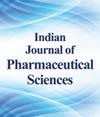中药口服治疗血管性痴呆的综述
IF 0.4
4区 医学
Q4 PHARMACOLOGY & PHARMACY
Indian Journal of Pharmaceutical Sciences
Pub Date : 2023-01-01
DOI:10.36468/pharmaceutical-sciences.1153
引用次数: 0
摘要
血管性痴呆是一种与脑灌注减少有关的严重神经系统疾病。目前还没有西药被批准用于治疗血管性痴呆。在中国,口服中药是治疗血管性痴呆的常用药物。本综述的目的是回顾近期临床试验中有关中药口服益处的证据,并概述其对血管性痴呆的影响。系统检索EMBASE、Cochrane、PubMed、中国科技期刊库、中国国家知识基础设施、中国生物医学数据库、万方数据库等7个数据库中治疗血管性痴呆的17种中草药。数据来自指南、共识、荟萃分析、系统评价和随机对照试验。采用修订后的Cochrane风险评估工具对符合条件的随机对照试验的意向治疗效应进行偏倚风险评估。采用Microsoft Excel 2019、GraphPad Prism和RSTUDIO统计进行数据整合和处理。数据显示,2009年至2014年间,发表的研究数量有所增加,而研究最多的药物是天栀、银杏叶和脑心通。意向治疗的总体偏倚风险较低,仅在7项试验中实现。银杏叶和天栀在改善轻度精神状态考试分数缺陷和日常生活活动障碍方面的效果更为一致。中药口服治疗血管性痴呆的随机对照试验总体报告质量较差,其透明度亟待提高。口服中药可能对血管性痴呆患者有益,但需要进一步评估。本文章由计算机程序翻译,如有差异,请以英文原文为准。
A Scoping Review of Oral Chinese Traditional Medicine for Vascular Dementia
Vascular dementia is a serious neurological disease associated with reduced perfusion of the brain. No western drugs have been approved for the treatment of vascular dementia. Oral Chinese drugs are commonly employed for vascular dementia in China. The purpose of this scope review is to review the recent evidence from clinical trials regarding the benefits of traditional oral Chinese medicines and to outline their effects on vascular dementia. Seventeen Chinese herbal medicines used in vascular dementia were systematically searched from 7 databases, such as EMBASE, Cochrane, PubMed, China Sci-Tech journal database, China National Knowledge Infrastructure, Chinese Biomedical Database as well as Wanfang database. Data were obtained from guidelines, consensus, meta-analyses and systematic reviews and randomized controlled trials. A revised Cochrane Risk Assessment Instrument was applied to evaluate the risk of bias with respect to the intention-to-treat effect on eligible randomized controlled trials. Microsoft Excel 2019, GraphPad Prism and RSTUDIO statistics were employed for data integration and process. As the data show, the number of research published increased between 2009 and 2014, while the most studied medicines were TianZhi, Ginkgo biloba leaf and NaoXinTong. A low overall bias risk of intention-to-treat was achieved in only 7 trials. More consistent benefits were observed with Ginkgo biloba leaf and TianZhi for amelioration of mini-mental state examination score deficits and activities of daily living impairments. The overall reporting quality of randomized controlled trials of traditional oral Chinese medicines for vascular dementia was poor and the transparency of these randomized controlled trials must be urgently improved. Oral Chinese drugs may be beneficial to patients with vascular dementia, but they need to be further assessed.
求助全文
通过发布文献求助,成功后即可免费获取论文全文。
去求助
来源期刊

Indian Journal of Pharmaceutical Sciences
PHARMACOLOGY & PHARMACY-
自引率
0.00%
发文量
0
审稿时长
2 months
期刊介绍:
The Indian Journal of Pharmaceutical Sciences (IJPS) is a bi-monthly Journal, which publishes original research work that contributes significantly to further the scientific knowledge in Pharmaceutical Sciences (Pharmaceutical Technology, Pharmaceutics, Biopharmaceutics, Pharmacokinetics, Pharmaceutical/Medicinal Chemistry, Computational Chemistry and Molecular Drug Design, Pharmacognosy and Phytochemistry, Pharmacology and Therapeutics, Pharmaceutical Analysis, Pharmacy Practice, Clinical and Hospital Pharmacy, Pharmacovigilance, Pharmacoepidemiology, Pharmacoeconomics, Drug Information, Patient Counselling, Adverse Drug Reactions Monitoring, Medication Errors, Medication Optimization, Medication Therapy Management, Cell Biology, Genomics and Proteomics, Pharmacogenomics, Bioinformatics and Biotechnology of Pharmaceutical Interest). The Journal publishes original research work either as a Full Research Paper or as a Short Communication. Review Articles on current topics in Pharmaceutical Sciences are also considered for publication by the Journal.
 求助内容:
求助内容: 应助结果提醒方式:
应助结果提醒方式:


